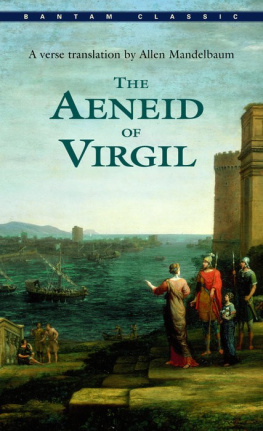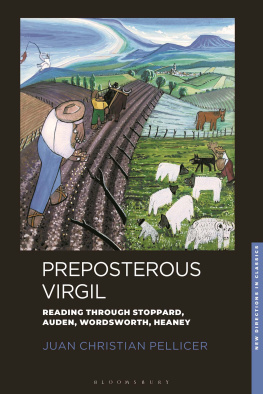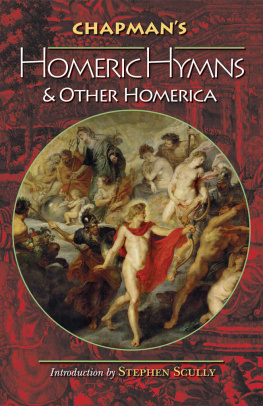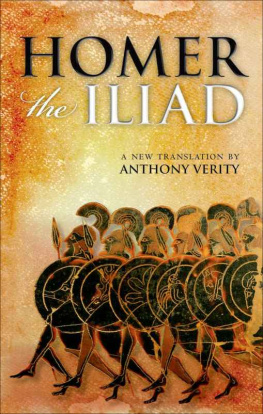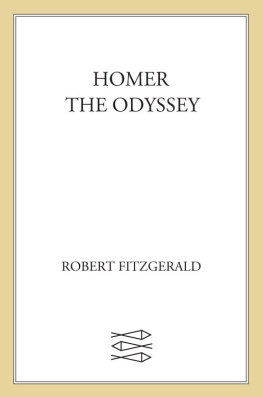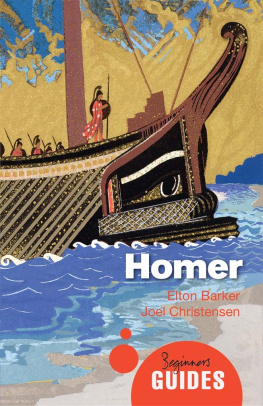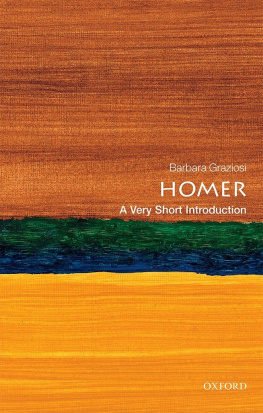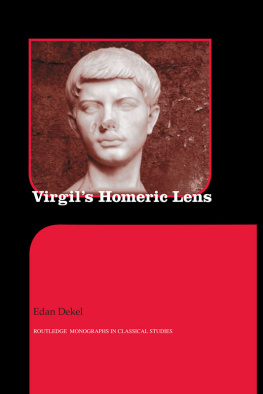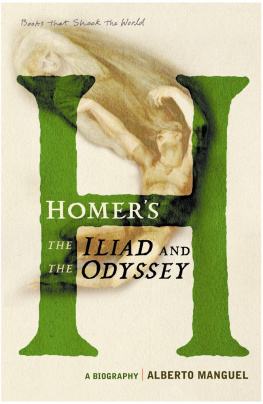Oklahoma Series in Classical Culture
OKLAHOMA SERIES IN CLASSICAL CULTURE
SERIES EDITOR
Ellen Greene, University of Oklahoma
ADVISORY BOARD
Ronnie Ancona, Hunter College and CUNY Graduate Center
Carolyn J. Dewald, Bard College
Nancy Felson, Athens, Georgia
Helene P. Foley, Barnard College
Thomas R. Martin, College of the Holy Cross
John F. Miller, University of Virginia
Richard F. Thomas, Harvard University
Communication, Love, and Death in Homer and Virgil
An Introduction
Stephen Ridd
UNIVERSITY OF OKLAHOMA PRESS
NORMAN

2800 Venture Drive
Norman, Oklahoma 73069
www.oupress.com
All passages from Homers Iliad and Odyssey and from Virgils Aeneid have been translated by the author into English from their original-language editions as presented by Oxford Classical Texts: T. W. Allen and D. B. Monro, eds., Homeri Opera Tomi IIV, Oxford Classical Texts (Oxford: Oxford University Press, 19021917); and R. Mynors, P. Vergili Maronis Opera, Oxford Classical Texts (Oxford: Oxford University Press, 1972).
Copyright 2017 by the University of Oklahoma Press, Norman, Publishing Division of the University. Manufactured in the U.S.A.
All rights reserved. No part of this publication may be reproduced, stored in a retrieval system, or transmitted, in any form or by any means, electronic, mechanical, photocopying, recording, or otherwiseexcept as permitted under Section 107 or 108 of the United States Copyright Actwithout the prior permission of the University of Oklahoma Press.
For information about permission to reproduce selections from this book, write to Permissions, University of Oklahoma Press, 2800 Venture Drive, Norman, Oklahoma 73069 or email .
ISBN 978-0-8061-5729-0 (paperback : alk. paper)
ISBN 978-0-8061-5945-4 (ebook : mobipocket)
ISBN 978-0-8061-5946-1 (ebook : epub)
Communication, Love, and Death in Homer and Virgil: An Introduction is Volume 54 in the Oklahoma Series in Classical Culture.
This eBook was converted from the original source file by a third-party vendor. Readers who notice any formatting, textual, or readability issues are encouraged to contact the publisher at .
For Barbara
Contents
Acknowledgments
I am very grateful to Professor P. E. Easterling for her generous support and advice. I dedicate this book and, more specifically, the reference in to Odyssey 6.18284, to my wife, Barbara.
Introduction
The Iliad, the Odyssey, and the Aeneid tell of the deeds both of men and of gods (Odyssey 1.338), of war and of its aftermath, and of the lives and deaths of those caught up in the conflict (and of course, of much else). They present a world of the imagination, created and developed long ago. In this book I aim to make accessible to the English reader of the twenty-first centuryas faithfully as possible through translation, comparison, and an awareness of cultural difference across the centuriesaspects of communication, love, and death within that world, and thus to share something of the richness of these three central texts of classical epic poetry. The book presents a series of readings of passages from these texts, chosen to illustrate its three subjects, and invites the reader to compare how these subjects are treated. It is based on close study of the wording of the original Greek and Latin texts as they appear in the Oxford Classical Texts, but I have translated all quotations into English. In the translations, I attempt as close a correspondence to the words and lines of the original texts as possible while conveying their sense in reasonably natural, twenty-first century English. Inevitably much is lost in translation, but the book rests on the belief that enough lives on to justify detailed, comparative study of this nature.
At the outset, it is important to make clear the limits set to this study and to give an idea of the methodology I have followed. In each chapter I focus mainly on the quotations from the three texts, though the discussion ranges widely across all three. After first establishing the context of the passages selected for discussion, I explore their wording and the ideas conveyed by this wording. The readings make use both of the traditional, word-by-word, line-by-line commentaries and the more recent, narratological approach, which looks at the recurrence of ideas and situations across a whole text. Beyond this, I attempt in the book to do something else: to give the reader a sense of ideas developing, rather than just recurring, within each of the three texts, and to look at comparable sequences of ideas in each of the two remaining texts.
Each of the books eight chapters is divided into three parts, and these three parts focus either on the three texts, one by one, or on a single aspect of the discussion presented within the chapter. Chapter notes carry the development or comparison of ideas beyond the limits set for the main discussion and offer suggestions for further reading. I limit these suggestions to a selection of works written in English and appearing in book form. The discussion itself does not go beyond the Iliad, the Odyssey, and the Aeneid. However, occasional, brief reference is made to Virgils poems the Eclogues and the Georgics, which precede the Aeneid. The aim of the book is to take the reader, selectively and in detail, through the three texts a number of times and in a number of different ways, and to suggest both resemblances and differences between them in their handling of the three subjects: communication, love, and death.
Four principles underlie the approach adopted and together help shape the book. The first is that the three texts should be treated on an equal basis. This contrasts with an approach often found in commentaries of the Aeneid, in which Homeric passages are cited as sources for the text. Virgils debt to Homer is not to be doubted, but I do not make it a part of this books concern.
These thoughts lead to my second and third principles, which exclude from consideration certain approaches to the texts. Whereas an appreciation of either of the Homeric poems does not require knowledge of the other, I assume that such knowledge does greatly enhance that appreciation, and particularly with regard to Homers second poem. and thus have nothing to say in this book about how these texts may have been created. Likewise, I do not ask what might or might not have been in Virgils conscious or subconscious mind as the Aeneid was taking shape. Nor do I attempt to explore the difference between what, in a broad sense, may be seen as traditional elements and what may be seen as original elements in the poems composition. The Aeneid was not quite finished at the time of Virgils death, and one feature of this incompleteness is the number of half-lines that the poem contains. These half-lines are often highly effective, and on occasion this effectiveness within the unfolding text forms part of the discussion, whatever may have been Virgils own ideas about these half-lines.
My third principle is that the reader is able both to read through a text, line by line, and also to range back and forth across all three texts (and of course beyond, though this is outside the scope of the book). As a consequence of this principle, I do not focus on attempting to reconstruct the reception of these three texts within the classical world. Thus, while the importance of the reception of the two Homeric texts as oral works may be borne in mind, I make no attempt to decide what may be considered a listeners reasonable recall of a word or an idea from an earlier point, or number of earlier points, within the text. Instead, I address the reader of the three texts from the start. This is fundamental to the books aim. Here, however, a complication arises in the form of a difference between the
Next page

